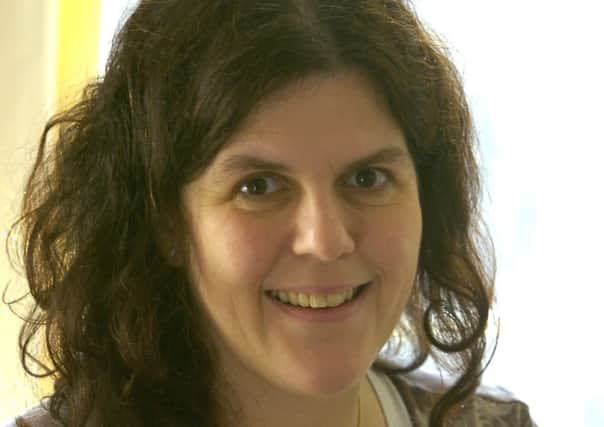Helen Fowler: Happiness is still possible, even with MS


Swallows swoop and dip around us. It’s still early morning; the hills beyond Loch Voil remain swathed in low-lying cloud.
“Okay, folks, lower your hands slowly,” says our retreat leader Dharmamudra. “Relaxing down through the shoulders, down through the body, ankles softening...” I’m scared even to try; the last attack by my Multiple Sclerosis (MS) has left me so stiff and weak. But Dharmamudra comes over and talks me through the moves. I can do this, I realize, much to my delight.
Advertisement
Hide AdAdvertisement
Hide AdLater that day, during one of the silences we’ve been asked to observe, another retreatant and I sit in a side room together, whispering to each other and giggling like naughty schoolgirls. She is a grandmother and I am theoretically old enough to be one; that doesn’t stop us from pretending we can hear music and clicking our fingers rhythmically, before collapsing in laughter.
My friend and I are both struggling, me with MS; she with cancer. But for a few moments, we manage to wriggle free from the loneliness of serious illness.
Part of the philosophy behind Dhanakosa is that everybody works together on cleaning tasks for the week. A bit reluctantly, I sign up for the task of cleaning the downstairs toilet.
It’s alarming just how much pride I take in scrubbing that lavatory, as well as the basin and floor. But doing so means I feel I can take my place in the community along with everybody else, doing so despite my disability.
The following day we are to sit on meditation stools in the shrine room, where we will chant together (without any finger clicking) before “sitting” or meditating.
Walking across the floor of the shrine room is tricky. Lots of blankets keep us cosy during meditation; but they nearly trip me up as I attempt to walk to my stool.
Other women retreatants reach out hands to help me as I stumble. One woman told me earlier that her son has just been diagnosed with MS. She is particularly kind to me, getting up and leading me by the arm across the maze.
I keep crying here at Dhanakosa. At first I’m not sure why, then I realize it’s the relief of discovering happiness is still possible, even with MS. There’s no more of that awful aloneness, where I spend too much time on my own, worrying.
Advertisement
Hide AdAdvertisement
Hide AdAt home, my kids are at school all day and my husband at work. I have been applying for jobs, but without any success – something I fear may be connected to those questions asking if I have an illness that could affect my ability to work.
I feel honour-bound to admit that, yes; I do indeed have an illness that might very well affect my ability to work. And, so far, I haven’t even got to interview stage with any of these jobs. But people at Dhanakosa accept me, MS and all, as one of them, one of the wider community. Okay, granted, I’m rubbish at Tai Chi. And I needed help to clean that toilet floor after knocking over my pail of water. But people are still kind to me. And the Tai Chi helps me; when I get home I notice that I can walk downstairs without having to pause on every step like I was doing before.
Maybe this feeling of belonging will prove as ephemeral as the clouds above Loch Voil. But sat here on my sofa, gazing at a throw I acquired on retreat at Dhanakosa, I feel the same sense of acceptance and peace return to my heart again.
Helen Fowler is an Edinburgh based journalist and MS campaigner